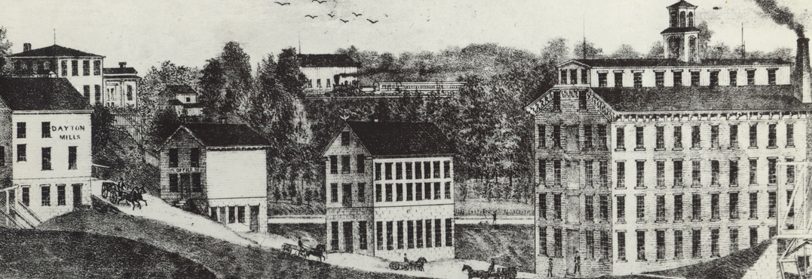from the January 26, 1922 Free-Trader Journal
DAYTON P. O. ROBBED BY MEAT CLEAVER BANDITS; GET $7.25
Thieves Use Butcher’s “Weapon” to Break Open Strong Box Containing
Funds Belonging to Uncle Sam and Store Keeper
Running a risk of facing a term in the federal prison to secure a few dollars of government money, thieves last night robbed the Dayton postoffice, making way with $5.25 in postal funds and $2 in pennies from the W. B. Fleming grocery store. The robbery is believed to have been pulled by the rankest kind of amateurs, so kiddish did the traces left behind by the robbers seem.
The postoffice which is located in one corner of the Fleming grocery store, was closed shortly before 9 o’clock last night. This morning at 7 o’clock Mr. Fleming opened his place of business and built a fire before he discovered that the place had been burglarized.
A small safe, which is more in the nature of a strong box, twelve by twenty-four inches in dimensions, which held the postoffice funds, had been smashed open by a meat cleaver, which was taken from the butcher shop. The supply of stamps was passed over, the robbers evidently searching only for cash. The money from the store was taken from a cash drawer and from a dish in the candy counter.
The meat cleaver was found where it had been hidden by the robbers, after the theft in the coal pile, in the basement.
Entrance to the building was gained by breaking out a basement window. The robbers then went upstairs by an inside stairway. They worked with the door, until they succeeded in getting the wooden bar lock that fastened it from the arm that held it.
A trail of burnt matches which were strewn on the floor around the room, showed that the burglars had taken their time in making the search. The robbers were evidently of a hungry frame of mind, for they stopped long enough to have a lunch, opening a can of peaches, and scattering crackers all around the cracker box, Some bars of candy are also believed to have been devoured by the hungry boys or men.
The candy and cigarette case was evidently overlooked for it is not believed to have been touched.
The thieves left the building by a side door which they unlocked from the inside of the building. The door was carefully closed after the robbers and it was not until a careful investigation was made that it was learned that the exit had been made that way.
Deputy Sheriff Fred E. Stedman went to Dayton this morning to make an investigation.1
- Ottawa Free Trader-Journal, January 26, 1922, p 1, col 2




